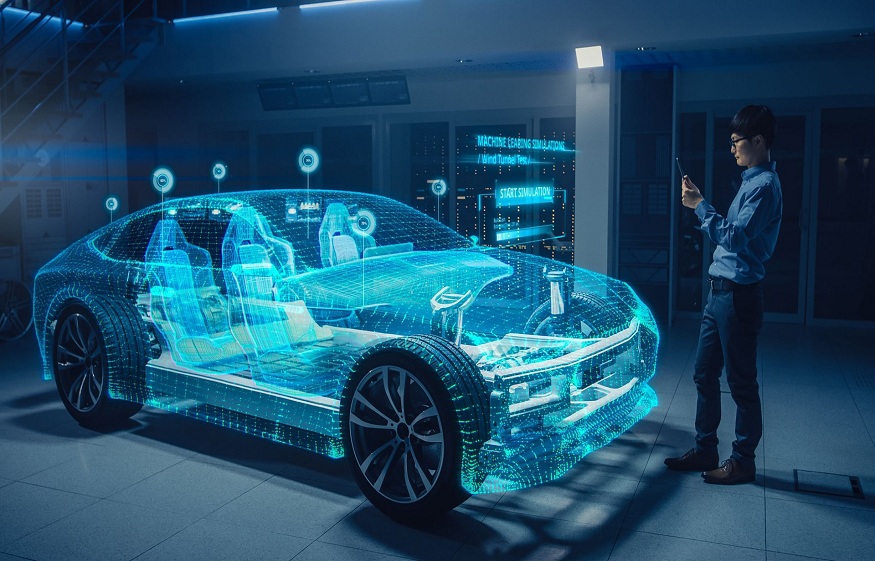Electric vehicles ( EVs) are no longer a marginal option but a central player in the ongoing energy revolution. As governments, businesses, and citizens increasingly commit to a cleaner future, electric vehicles are revolutionizing the race toward carbon neutrality by providing a concrete solution to reduce greenhouse gas (GHG) emissions. This article explores the latest developments in the sector, public policies such as the Prime Advenir and tax credits, as well as the remaining challenges to achieve this ambitious goal.
The rise of public policies in favor of electric vehicles
The rise of electric vehicles has been greatly facilitated by incentive-based public policies. In Europe, and particularly in France , these policies aim to promote the purchase of less polluting vehicles while reducing the associated costs. The role of these measures cannot be underestimated in the growing popularity of electric vehicles. Among them, we find in particular the Prime Advenir , a financial aid that subsidizes the installation of charging stations .
The Prime Advenir has played a key role in transforming the infrastructure network in France, encouraging local authorities and businesses to invest in publicly accessible charging stations. Electric vehicles are revolutionizing the race towards carbon neutrality thanks to this increased infrastructure, which allows users to travel with confidence, knowing that they can easily charge their vehicle. Indeed, mass adoption of electric vehicles cannot happen without a solid and accessible charging network, and this is where the Prime Advenir comes in decisively.
At the same time, the energy transition tax credit continues to stimulate the purchase of electric vehicles by individuals. This mechanism helps to reduce the financial burden associated with the purchase of a new vehicle or the installation of home charging stations. The French government has strengthened these measures in 2024 in order to achieve the emission reduction targets set under the Paris Agreement.
Carbon neutrality: A major challenge for the automotive industry
The goal of carbon neutrality is not only for governments, but also for businesses, especially in the automotive sector. Car manufacturers are investing heavily in research and development to make their vehicles more environmentally friendly. Electric vehicles are revolutionizing the race towards carbon neutrality by enabling the adoption of innovative technologies that significantly reduce the carbon footprint of car manufacturing and use.
Manufacturers like Renault, Tesla, Volkswagen, and even newcomers like Rivian or Polestar are at the forefront of this transformation. These companies have understood that the future of the automotive industry is inextricably linked to sustainability. New generations of electric vehicles are designed not only to be more efficient and offer better autonomy, but also to minimize their environmental impact throughout their lifecycle, from manufacturing to end of life.
Manufacturers’ efforts to improve battery recyclability, reduce the carbon footprint of production, and use more sustainable materials demonstrate that electric vehicles are revolutionizing the race toward carbon neutrality . For example, some companies are exploring alternatives to lithium-ion batteries, such as solid-state batteries, which offer advantages in terms of durability, safety, and production cost.
The growth of electric business fleets
In addition to individual vehicles, electric vehicles are revolutionizing the race toward carbon neutrality by gaining ground in corporate fleets. Many companies are committing to electrifying their fleets to meet their environmental goals, reduce operating costs, and strengthen their brand image. These fleets include delivery vehicles, public transportation services, and even taxis, which have a significant impact on reducing emissions in urban areas.
Amazon, for example, recently announced a massive investment in electric vehicles for its delivery fleet, with the goal of becoming completely carbon neutral by 2040. This large-scale initiative is part of its commitment to the “Climate Pledge.” Electric vehicles are revolutionizing the race towards carbon neutrality in the logistics and commercial transportation sector, demonstrating that they are a viable alternative to the diesel vehicles traditionally used for these activities.
New infrastructure and urban planning: a necessary change
Another important aspect of the transition to electric vehicles is the need to adapt existing infrastructure. Electric vehicles are revolutionizing the race towards carbon neutrality , but this revolution cannot succeed without a profound change in our urban planning and infrastructure. Cities must be redesigned to seamlessly integrate charging stations, dedicated EV parking, and smart energy management systems.
Major European cities such as Paris, Berlin, and London have already undertaken initiatives to encourage the use of electric vehicles. This includes installing charging stations in city centers, subsidies for electric car owners , and incentives for electrified public transport. Electric vehicles are revolutionizing the race towards carbon neutrality by forcing decision-makers to rethink how cities are designed to accommodate these new forms of sustainable mobility.
In addition, the development of smart charging ntworks allows for better management of energy consumption, by distributing electricity according to needs and using the energy stored in EV batteries during peak hours. This also contributes to the stability of the electricity grid and the reduction of energy consumption peaks, thus reinforcing the overall objective of carbon neutrality.


